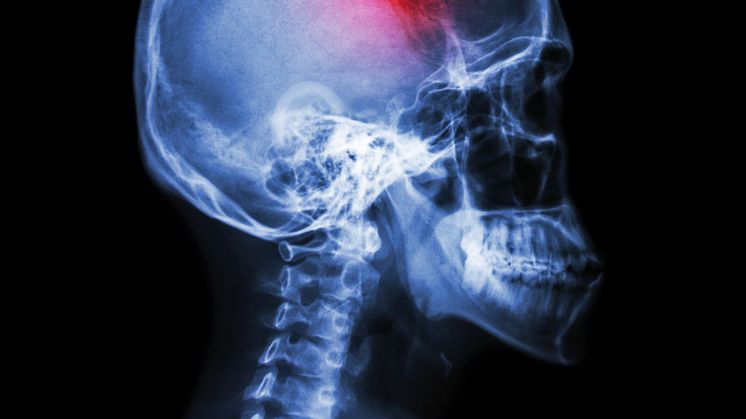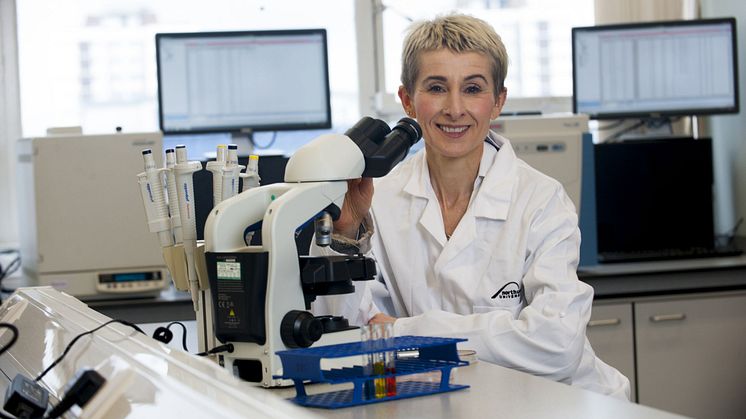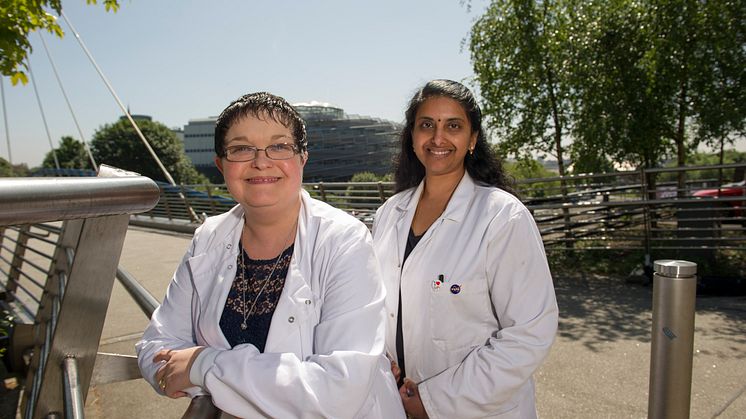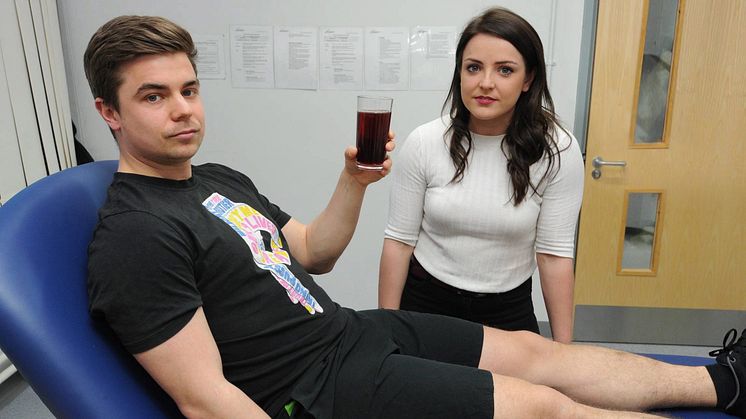
Press release -
Thousands could benefit from revolutionary stroke treatment
Almost 10,000 UK stroke patients a year are missing out on a treatment that can prevent disability following a stroke, according to research led by Northumbria University, Newcastle.
Stroke is a serious, life-threatening and often debilitating condition which can have a devastating impact on patients and their families. In the UK, nearly 95,000 people are admitted to hospital following a stroke each year. Many stroke survivors are left severely disabled.
New research led by Dr Peter McMeekin, from Northumbria University, shows that one in 10 stroke patients admitted to hospital each year could benefit from a revolutionary treatment called a ‘mechanical thrombectomy’.
While many people with a stroke caused by a clot currently get drugs to help dissolve the blockage, this does not always work completely. Thrombectomy - or clot retrieval - is a method, which aims to remove the clot mechanically. Mechanical thrombectomy delivered alongside existing clot busting drugs more than doubles the numbers of stroke patients who remain independent. It is a time critical highly skilled operation, and stroke services need to be set up to be able to deliver the treatment.
A thin metal wire housing a mesh is inserted into a major artery in the leg and, under X-ray guidance; it is directed to the site of the problem in the brain. The mesh is then expanded to trap and remove the clot.
Dr McMeekin was joined by researchers from Newcastle University, Oxford Academic Health Science Network and the National Institute for Health Research Collaboration for Leadership in Applied Health Research and Care – South West Peninsula (NIHR PenCLAHRC). The study formed part of a larger NIHR study, known as Promoting Effective and Rapid Stroke Care (PEARS), which looked at data from trials of mechanical thrombectomy data and the characteristics of stroke statistics in the UK to work out how many patients might benefit from the procedure.
In a presentation given to the UK Stroke Forum national conference, they estimated one in 10 people admitted to a hospital with a stroke could be eligible for thrombectomy.
The challenge, according to Dr McMeekin will be making this technique more widely available in the UK.
He said: "Currently a fraction of stroke patients receive mechanical thrombectomy at a limited number of centres. Delivering a universal mechanical thrombectomy service for stroke patients will prove a challenge for the NHS, particularly at a time when resources are already stretched. It will involve investment in new skills and technologies as well as changes to acute care pathways. A particular challenge will be how to ensure that people living in more remote communities can access the same services as those living within major population centres."
Prof Phil White, Professor of Neuroradiology at Newcastle University and Consultant at Newcastle upon Tyne Hospitals, said: “Mechanical Thrombectomy is a highly effective treatment for acute ischaemic stroke, with eight clinical trials showing a significant reduction in disability after stroke if it is used immediately in the right patients. The challenge is to make this technique more widely available, as current figures suggest that fewer than 600 patients receive this treatment each year in the UK.”
Dr Martin James, Consultant Stroke Physician at the Royal Devon and Exeter Hospital and a researcher with NIHR PenCLAHRC, said: “Delivering mechanical thrombectomy to the 9,000 people who need it will require major changes to the configuration and skill sets of existing acute stroke services. We must work quickly to establish what needs to be done so that more people in the UK can benefit from a treatment which can dramatically reduce disability after a stroke as well as cutting associated costs to the NHS and social care.”
Prof Gary Ford CBE, Chief Executive of Oxford AHSN and Consultant Stroke Physician at Oxford University Hospitals NHS Foundation Trust, said: “AHSNs have a key role in ensuring the uptake of medical innovation that improves patient outcomes. In order to accelerate UK stroke patients’ access to life-changing innovation, a first step is to have a clear understanding of the number of people who could benefit from mechanical thrombectomy every year. Our research provides that information.”
Prof Stuart Logan, Director NIHR PenCLAHRC said: “I am delighted about the results of this study and the CLAHRC’s continued involvement in research around treatments for patients who have suffered a stroke. We hope that this will lead to further collaborative work within this group and ultimately improved outcomes and experiences for patients.”
Topics
Northumbria is a research-rich, business-focused, professional university with a global reputation for academic excellence. To find out more about our courses go to www.northumbria.ac.uk
If you have a media enquiry please contact our Media and Communications team at media.communications@northumbria.ac.uk or call 0191 227 4571.













